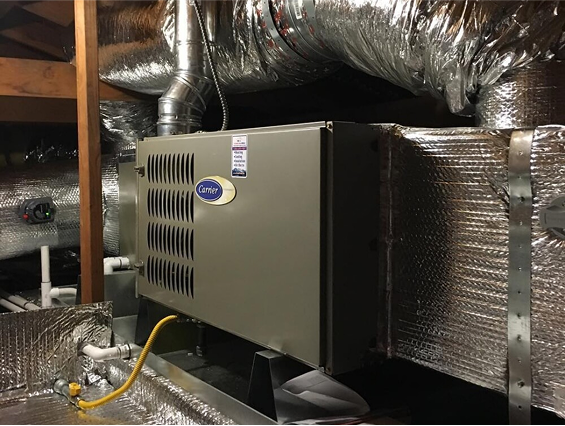Gas Furnace Repair

Reliable and Effective Heating Solutions
Why Choose Our Heating System Repair?
- Customized Solutions: Our heating system repair is tailored to address the unique needs and requirements of your home or business, ensuring maximum efficiency and comfort.
- Repairs: With years of industry experience, our team conducts precise, reliable repairs, guaranteeing your heating system performs at its best.
- Enhanced Energy Efficiency: Professional repairs not only restore the function of your heating system but also improve energy efficiency, potentially lowering operational costs.

Heating System Repair & Maintenance
- Southern Comfort Heating & Air: understands the specific heating needs of homes and businesses in the Tennessee Valley and surrounding areas.
- Comprehensive Services: From diagnostics to repairs and ongoing maintenance, we offer a full range of heating services to keep your system running smoothly year-round.
- Client-Centered Approach: We prioritize your comfort, working closely with you to address your heating needs and ensure a seamless repair experience.
Heating System Repair FAQs
How often should my gas furnace be serviced?
What are signs that my gas furnace needs repair?
Unusual Noises: If your furnace is making strange noises, such as banging, rattling, or squealing, it could be a sign that something is wrong. These noises
could indicate loose parts, worn-out bearings, or other mechanical problems.
Inconsistent Heating: If your home isn’t heating evenly, or if some rooms are
colder than others, it could be a sign that your furnace isn’t working properly. This
could be due to a variety of issues, such as a dirty air filter, a clogged burner, or a
faulty thermostat.
Strange Odors: If you smell gas or a burning odor coming from your furnace, it’s
important to turn off the system immediately and call for professional help. These
smells could indicate a gas leak or other serious problem.
Frequent Cycling: If your furnace turns on and off frequently, it could be a sign
that it’s struggling to keep up with the demand. This could be due to a variety of
issues, such as a dirty air filter, a clogged burner, or a faulty thermostat.
Increasing Energy Bills: If your energy bills are increasing even though you
haven’t changed your usage habits, it could be a sign that your furnace is
inefficient. This could be due to a variety of issues, such as a dirty air filter, a
clogged burner, or a faulty thermostat.
Age of the Furnace: If your furnace is more than 15 years old, it may be time to start thinking about replacing it. Older furnaces are more likely to break down and
require repairs, and they are also less energy efficient.
If you notice any of these signs, it’s important to call and schedule a diagnostic and repair visit. Ignoring these signs could lead to more serious problems down the road, such as a complete system failure.
What troubleshooting steps can I take before requesting service?
Before calling for service, Southern Comfort suggests you check the following:
- Air Filter: Ensure your air filter is clean. If it’s dirty, replace it. A clogged filter can significantly impact your system’s performance.
- Registers: Verify that all air registers (vents) throughout your home are fully open and free from any obstructions.
- Thermostat Power: If your thermostat is unresponsive, check your home’s electrical panel to ensure the corresponding circuit breaker or switch hasn’t been accidentally tripped or turned off.
- Gas Supply: If you have a natural gas furnace, confirm that your gas meter hasn’t been turned off.
- Propane Level (if applicable): If you use propane, check your tank and ensure it has at least 20% remaining. Running out of propane can cause system shutdowns.
Which brands of HVAC systems do you service?
Should I consider repairing or replacing my current furnace unit?
Deciding whether to repair or replace your HVAC system is a big decision.
At Southern Comfort, we believe it’s essential to do what aligns with your individual needs and budget. We’ll provide you with a comprehensive assessment of your system’s condition, outlining all your options, and empowering you to make an informed choice.
Generally, gas furnaces have a lifespan of 10 to 20+ years, with factors like
environmental conditions, usage patterns, and maintenance history playing a
significant role.
We’ll help you evaluate these factors to determine the best course of action for
your situation.
What metric is used to measure the efficiency of a gas furnace?
The efficiency of a gas furnace is rated using the Annual Fuel Utilization Efficiency (AFUE) standard.
Gas furnaces vary in their operation and features, and are categorized in
several ways:
- Operational Stages:
- Single-stage: Operates at a constant, maximum output.
- Two-stage: Offers two levels of output (high and low) for more consistent comfort and efficiency.
- Modulating: Adjusts its output in small increments to precisely match heating demand.
Condensing vs. Non-Condensing:
- Condensing furnaces: Extract more heat from the combustion gases, resulting in higher AFUE ratings. They require a special venting system.
- Non-condensing furnaces: Are less efficient and typically use a traditional chimney or vent.
The type of venting (flue) system you have in your home can influence the type of furnace that can be installed. If modifying the existing flue is not feasible, it may limit your replacement options.
Which furnace brands do you typically recommend to your clients?
At Southern Comfort, we frequently recommend Trane furnaces to our clients due to their proven reliability and excellent manufacturer support.
However, we understand that Trane may not be the ideal choice for every homeowner. That’s why we offer a wide range of furnace options from various
reputable manufacturers.
We’re happy to discuss your specific heating needs, budget, and preferences to provide you with a personalized quote for a system that perfectly suits your requirements. Our goal is to ensure you’re completely comfortable and confident in your heating system choice.

